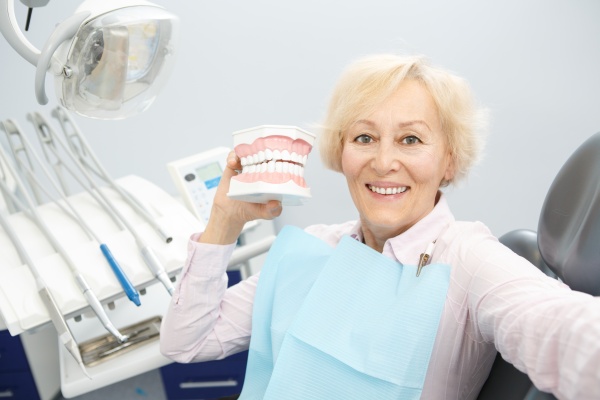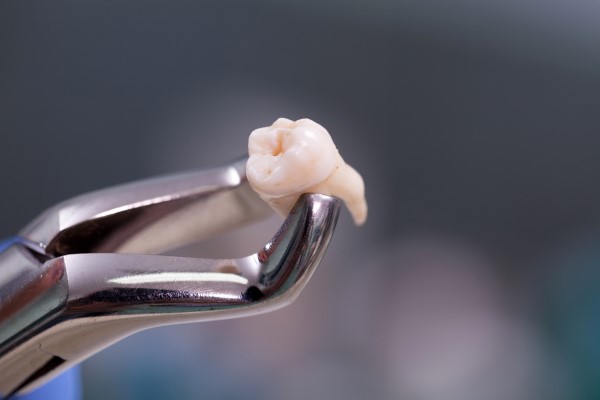3 Tips for Adjusting to New Dentures

Looking for tips for wearing new dentures? There are a few different options when it comes to choosing a dental professional for denture reasons. General dentistry is one of the more common dentistry options people are choosing to get their new dentures, as many general dentists now offer their patients denture services.
New dentures
Getting ready to wear your new dentures? This should be an exciting time, as dentures are a replacement option for those who are missing multiple or all of their teeth. Teeth play a very important role in one’s life, so when someone is in need of teeth replacement, getting dentures is a popular choice. Since wearing new dentures requires a learning curve, learning some tips for wearing new dentures is something every new denture wearer needs to do to ensure a successful adaptation to their new teeth.
How to adapt to life when wearing new dentures
The list below includes three different beneficial tips that new denture wearers can use to help them adjust to their new life wearing dentures.
#1 – Practice talking
Dentures change the way someone talks, making it essential for them to practice talking at home before going out in public. Talking out loud is necessary, as this allows the denture wearer to hear any words they may not be pronouncing correctly. Tips for helping wearers talk properly while wearing their new dentures include reading in front of a mirror, gently biting down and swallowing before talking, singing and using a dental adhesive if necessary to keep the dentures in their proper place.
#2 – Practice eating
New denture wearers can practice eating at home before eating out in public. Since new denture wearers say their new dentures feel strange or even clunky, practicing eating at home is a good idea before going to a café or restaurant. It is necessary to get used to chewing with dentures, eating soft foods in the first week or so is an essential part of learning how to eat wearing new dentures. Chewing evenly on both sides of the mouth and not using one’s front teeth helps keep the dentures in their proper place.
#3 – Exercise the cheeks
The muscles in the cheeks are responsible for the motions of eating and talking. This makes it beneficial to strengthen these muscles, as this will in turn help support the ability to more easily perform both talking and eating abilities when wearing new dentures. These exercises can be performed before getting dentures and require one to make an exaggerated smile for 15 to 20 seconds, four to five times a day.
Need new dentures?
In need of new dentures? When someone wears dentures for the first time, there is a definite adjustment period they need to go through. While it is essential for new denture wearers to follow all of the instructions given to them by their dental professional, the tips above will help when it comes to making everyday life living with dentures as simple as possible.
Are you considering dentures in the New York area? Get more information at https://newyorkdmd.com.
Recent Posts
Dentures are a popular and effective tooth replacement option. However, they do require occasional adjustments. Otherwise, loose dentures can cause discomfort, affect speech, and make eating more difficult. It is important to see a dental professional about loose dentures as soon as possible to maintain your oral health and everyday function.Dentures may become loose for…
If you are looking for dentures, it is essential to know how to care for them properly. They can be expensive, and not everyone has the budget to keep them fresh with regular visits to the dentist.Learning about denture hygiene will help ensure that they stay clean and comfortable while fighting plaque buildup and tartar…
If you have a missing tooth, especially one that is hidden from everyone when you speak or smile, you may want to waive it aside. However, a front tooth is visible and gets plenty of attention when you open your mouth. Regardless of the position of the missing tooth, failing to replace it may have…
It is not just inconvenient and humiliating to have loose dentures. They may even end up posing a risk to your dental health over time. Unfortunately for denture users, looseness is a common long-term side effect of this sort of dental care. There are several solutions available when it comes to repairing a loose denture,…


